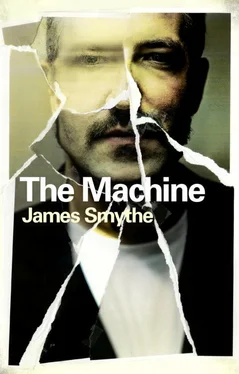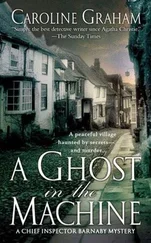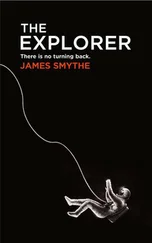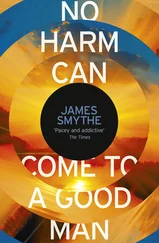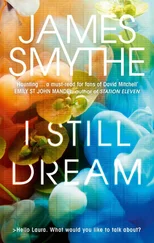When the company behind the Machine announced that they were working on a cure – they would put the word in inverted commas, because they were so cautious with how they went about presenting it to the world after the last time – they said that the technology side of things was flawless.
They said, We can take a person and make them whole again.
Beth – everybody – doubted it, but then they showed videos of a man and his progress. In the earliest videos he shuffled like a zombie and needed feeding and changing and his eyes lolled back in his head even as his loved ones poked and prodded him, asking him questions, trying to get a response. In later ones he fed himself and walked, and even responded to his name. They showed old video of him ignoring persistent, insistent calls – Shaun, Shaun! – over and over again. Then they invited him up onto the stage where they were making the announcement: and they did it solely by calling his name. Once. Shaun! He ran up, and he shook their hands. He looked at the cameras, and his gaze was a bit glassy-eyed but he was mostly there. He waved at the crowd, and then they asked his wife up there as well, and they embraced on stage to applause. Standing ovation: he is healed.
And this can only get better, the men from the company promised. Beth saw it in their eyes: the idea that this was somehow their redemption. The thing that might stop their houses being burned and people fighting with them in the streets and the headlines on the tabloid sites. They have destroyed thousands of lives and now they’re back, ready to save the day. They said, It takes years of therapy to bring them to this point. It uses our pioneering technologies. The process works best when we’ve got a full and frank medical history, and when you help us.
Shaun was back in another video. This time, his bedside in some hospice somewhere, where the bed was thin and metal-framed and the bed sheets that yellow colour. On his head was a Crown, or what passes for a Crown now: tiny multi-coloured pads designed by a famous South American designer, to make it appealing, placed on the temples and the forehead, tiny lights indicating that they’re all wirelessly connected. His wife talked Shaun through a shared experience from their past that, presumably, had been lost; she’s laughing and squeezing his hands.
We found it so funny, she said, and then you opened the presents, and you had another one, from Mark and the kids. A funny story, and when she laughed at the end, so too did Shaun, somehow simpatico to it all. On stage, Shaun watched the video and then spoke to the audience. Slow and measured, careful with his words.
I can hardly believe this is me, he said. Standing here in front of you. The audience whooped and clamoured.
Shaun represents hundreds of man-hours of work, the doctors said, and it’s not perfect. Shaun’s not perfect. But we’ll get there. By the end of this decade, they said, we hope to be able to offer this therapy to many of our ex-patients. Shaun waved again. The end of the decade made Beth’s heart sink, because that was eight years away. That was so far away that, by the time it arrived, she would have been apart from Vic for more time than they had been together. And that was two years ago. They were asked, over and over, how long it would be before the public could have access to the tech. We don’t want to rush things, they said. They – everybody – wanted to avoid a situation like the first time around: rushed to market, and then thousands damaged, seemingly irreparably. They were cautious, and their ‘end of the decade’ became the start of the next decade, in the post-Shaun interviews. They wanted to wait until it was right.
The internet didn’t want to wait, though. People who knew things, people who worked for the company and hated what they had done, people with vested interests: they all stepped forward under the internet’s veil of anonymity, and they told others how to do it. They leaked firmware, software, instructions; things that somehow they had got their hands on, that they shouldn’t have had. Cloak and dagger, they explained that the Machine could be used to create a new persona in the damaged. It could build them up again, as they were, based on who they were. It could be achieved through talk, through photographs and videos. It was better if you had the recordings of their original sessions. They got together in clandestine meetings, organized themselves to do work for this: on the technology, the software, the work itself. Eventually they had their own case study, their own version of Shaun: a lady called Marcela. She was from Eastern Europe, and Beth didn’t understand what she was saying but she got the gist. Marcela was herself again, in that she smiled and she waved at the camera and the person behind it, and they bent past the lens and leaned in to kiss her and she kissed his bearded face back, and he gave a thumbs-up to the camera.
We used the original recordings to help Marcela, the video said, and that sold it to Beth. Because she couldn’t wait. This was too important to her, and to Vic. When Beth opens her eyes, the on-screen bar is finished: only it says that the files have been moved, not copied. She looks at the hard drive and it’s empty, but it doesn’t matter. Vic’s memories are in the Machine now, and where they should be.
The window of her bedroom opens onto a view of what used to be thought of as a field, but now it’s just scruff, cracked dry soil and scuffed-up anthills. They called them the Grasslands when they built this place. The area between the flats and the cliffs isn’t huge, because that was the only way that they could get planning permission, and the most-desired flats had been the ones with the eastern-aspect view: looking out onto all that grass. The residents would remark that they lived in the greyest building on the island, but it didn’t matter, because the view was what you saw every morning. You weren’t looking at the walls. It was meant to be for new overspill from Portsmouth, because the mainland couldn’t expand any more. That was the trick with it being so enclosed: there was no more land to build on. The developers moved across the water, assuming that people would want to live there, but they didn’t. Apart from Beth, that is. The Grasslands themselves were protected because they were so close to the new cliffs, far too fragile to build on. The local council had decided that those flats that had the spectacular views – out to the sea, to the mainland across the way, to freedom – would be put up for sale, and the rest could go to whoever needed them. Back then, when the first proposals for the construction of the site went through, the Grasslands were still green, and the trees dotted around the landscape were all green as well, their leaves almost constantly present. When Beth moved in she didn’t know the names of them, but it helped her, being able to see them so unfaltering: when she was at her lowest, they survived. The trees are still there, now bare or getting there, but the grass is almost entirely gone: it’s now a sickly yellowing orange, almost burnt. It looks the way that lawns used to look in the summertime after kids had played on them: hard, dry soil patches, like liver-spotted scalp peering through thinning hair.
Beth spends the day waiting for the files to copy, staring out of her window at the Grasslands, and by the time she’s remembered that she hasn’t eaten it’s dark outside. She looks at the tins piled in the kitchen and thinks about how many of them she’ll be eating in the weeks – months? – to come, baked beans and spaghetti hoops on toast, and she looks out of her living room window – past the rest of the estate, over towards the street of shops and takeaway restaurants that leads towards the main road – and decides to chance it. She opens the front door and looks around for people, but she can’t see anybody out this side. There’s noise (rustling and cackling) from behind the block, from the Grasslands, but that doesn’t worry her. The only creatures that she ever sees out on the Grasslands are cats, from all around the neighbourhood: a glaring of them masses, like a congregation. They’re not watching her or the flat or anything in particular. They just seem to mass. If there are kids out there – or worse – she can never see them. They’ve become excellent at staying in the dark. She locks the door behind her, and then checks it’s locked, shoving it with her shoulder. When it doesn’t budge she checks the window where the men took it out, pushing it as hard as she can to check it’s secure. Satisfied, she walks down the bridge path, towards the stairwell. The doorway’s open – some of the residents collectively decided to take the door off, because there were times that trouble had waited at the bottom of the stairs, and they wanted to make sure that they could hear it in future – and the lights are on, which buoys Beth. She runs down them, really pelts, and then out into the estate, past the bollards, to the street. She wants something hot. A curry, maybe, or spicy Chinese. She can smell the Indian Palace from the edge of the estate: the restaurant opens their back windows and doors, trying to entice people down. Some nights the whole estate can reek of food, and some nights that’s the last thing that Beth wants to think about. But tonight it’s enough.
Читать дальше
Конец ознакомительного отрывка
Купить книгу
